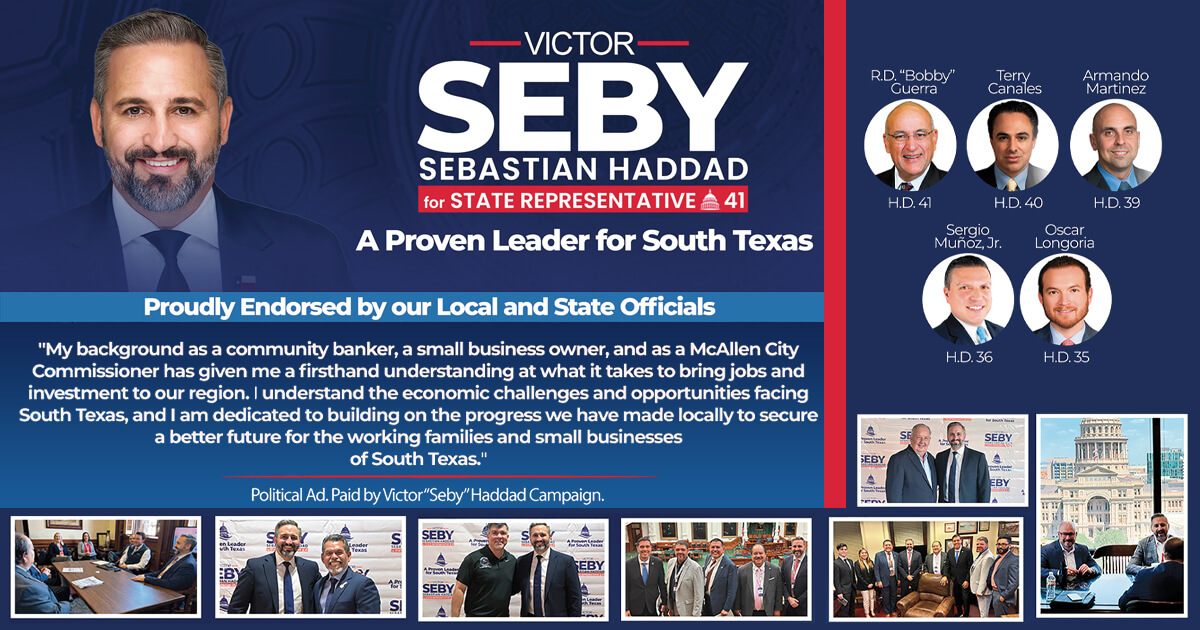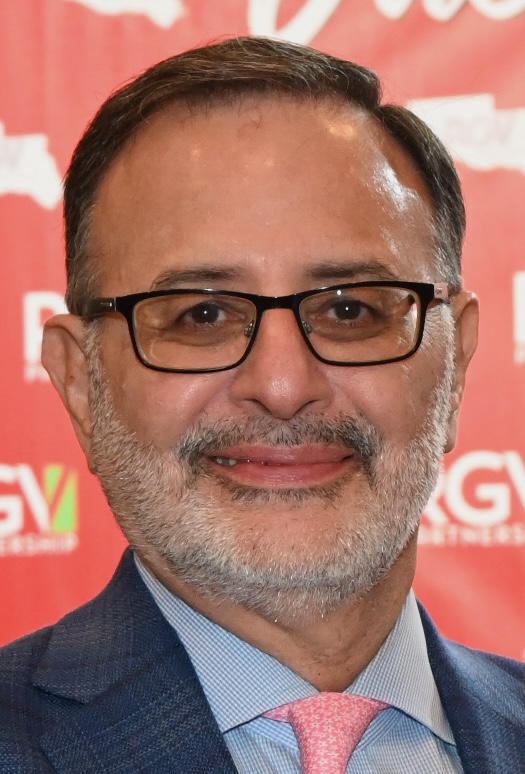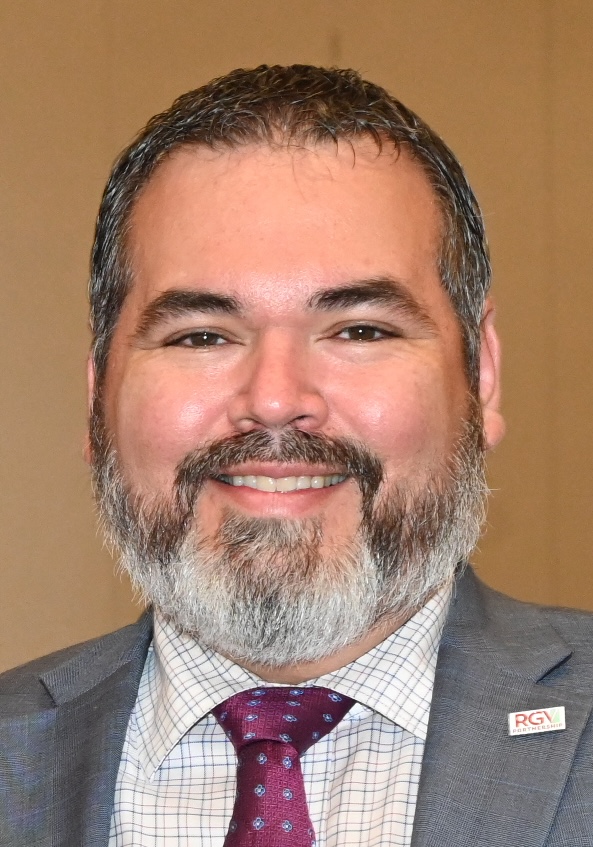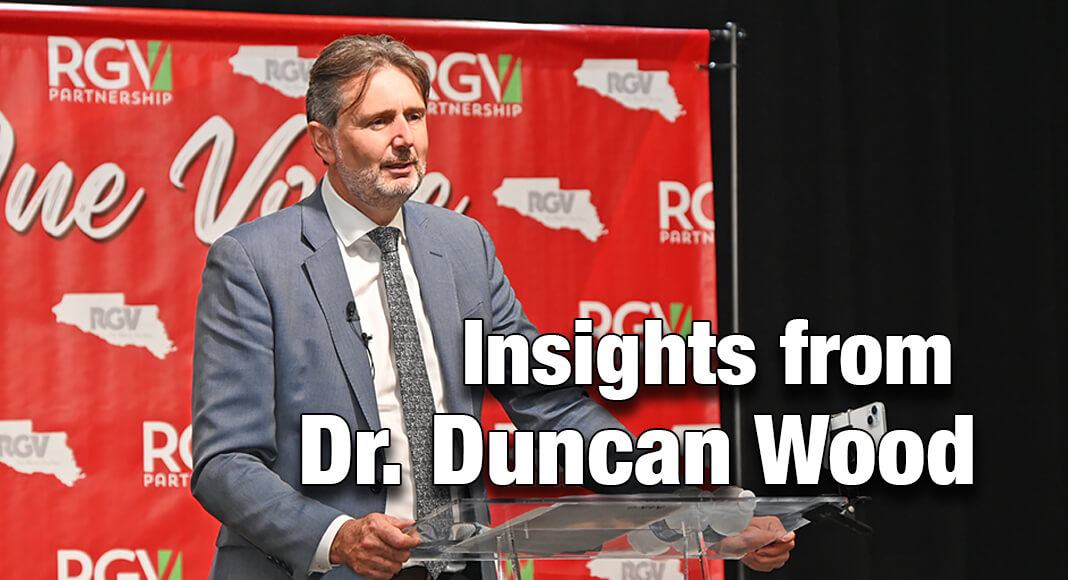
Texas Border Business
By Roberto Hugo González
On September 12, 2024, the Harlingen Convention Center hosted a crucial discussion on the evolving US-Mexico relationship. The event was hosted by the Rio Grande Valley (RGV) Partnership and sponsored by multiple organizations, with Texas Regional Bank leading the way. Daniel Silva, President and CEO of RGV Partnership, kicked off the event by highlighting the significance of international trade and its intersection with political shifts, particularly following Mexico’s recent elections.
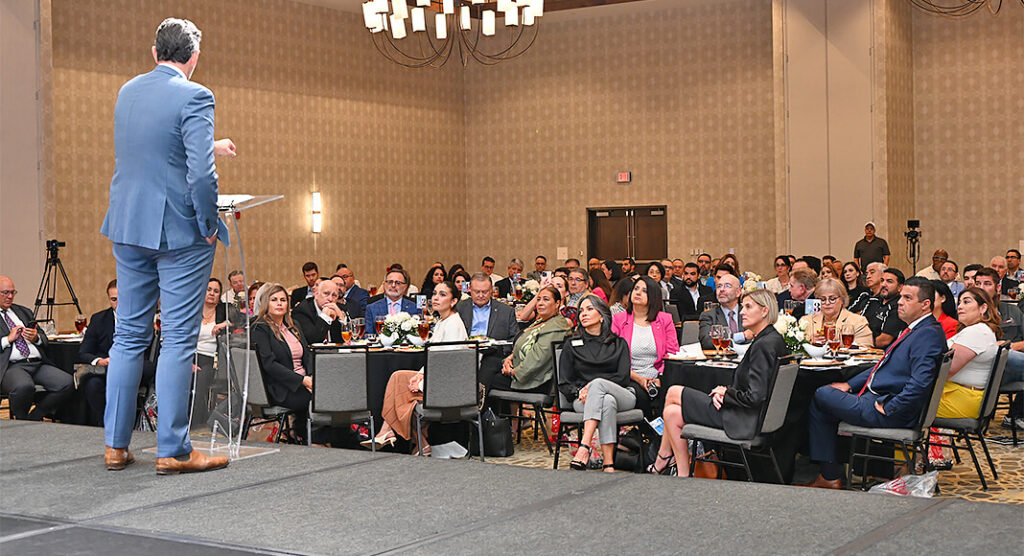
Dr. Duncan Wood, CEO of the Pacific Council on International Policy and a renowned expert on US-Mexico relations, was central to this insightful dialogue. His keynote address emphasized Mexico’s political changes’ profound implications on trade agreements, economic cooperation, and regional stability. Eduardo Caso, Senior Vice President of International Private Banking at Texas Regional Bank, also lent his expertise on cross-border trade and international finance and introduced Dr. Wood to the audience.
Dr. Wood emphasized that the US-Mexico relationship is at a critical juncture, with both nations in a transition phase as they prepare for a transition after the presidential elections. This period presents a unique opportunity for realignment or redefinition of bilateral ties. He noted, “As Mexico and the United States undergo presidential transitions, the potential for change is enormous, and it will significantly affect how both nations collaborate on trade and economic issues.”
The next administration in Mexico, led by president-elect Claudia Sheinbaum, is expected to shape these dynamics, especially in areas like trade cooperation. “Sheinbaum’s policies will be key in determining the direction of Mexico’s economic engagement with the US,” Dr. Wood said, adding that her relationship with the current administration, led by President Andrés Manuel López Obrador (AMLO), will be a factor in maintaining continuity in policy.
The political changes in Mexico were a key focus, with Dr. Wood analyzing the election results and their implications. López Obrador’s tenure saw an expansion of social welfare programs, but questions remain about the sustainability of these populist policies. “AMLO’s administration focused heavily on economic populism, and the incoming government, led by Sheinbaum, is expected to follow a similar path,” Dr. Wood explained.
This potential for continued consolidation of power within the Morena party under Sheinbaum’s leadership may raise concerns among international investors. “There’s a fear that economic policy could become too focused on domestic welfare at the expense of fostering a competitive environment for foreign investment,” Dr. Wood warned, hinting at possible future obstacles to economic growth.
With the Rio Grande Valley’s economy deeply intertwined with cross-border trade, discussing the future of US-Mexico economic relations was particularly relevant for local stakeholders. Dr. Wood addressed the importance of nearshoring as a transformative opportunity for Mexico’s economy, driven by global supply chain realignment. “Nearshoring presents a significant opportunity for Mexico, and the Rio Grande Valley stands to benefit from increased manufacturing and trade activity,” he said.
However, Mexico’s political and economic landscape could pose challenges for investors. Dr. Wood pointed out, “Governance, rule of law, and organized crime remain critical issues. These concerns can hinder Mexico’s ability to attract the long-term investment needed to grow its economy.”
Dr. Wood also highlighted the importance of trade agreements such as the United States-Mexico-Canada Agreement (USMCA). “The 2026 review of the USMCA will be a critical moment in determining the strength of North American economic integration,” he said, urging both countries to ensure that the political climate remains conducive to growth.
Much of Dr. Wood’s speech revolved around Mexico’s ongoing political reforms, particularly those affecting the judiciary and regulatory bodies. Under López Obrador’s administration, there have been moves to reduce the independence of these institutions, a trend that Dr. Wood expressed concern about: “Obrador’s reforms have undermined some of Mexico’s most important institutions, raising the specter of further politicization of the judiciary under Sheinbaum.”
The concentration of power within the executive branch could pose long-term challenges for Mexico’s political stability and foreign relations. “Sheinbaum will inherit a system where power is increasingly centralized. This could create issues, especially regarding maintaining investor confidence and ensuring a stable legal environment for business,” Dr. Wood noted.
Dr. Wood also addressed the broader issues shaping US-Mexico relations, with trade, immigration, and security at the forefront. “Immigration and security have always been core issues, but the changing political landscape in both countries will dictate how these challenges are approached in the coming years,” he stated.
On a global level, geopolitical competition with China was also discussed. Dr. Wood argued that the US and Mexico need to deepen their economic ties to strengthen North American competitiveness. “The US cannot compete with China without Mexico, and Mexico needs the US to bolster its economy. Integrating our two economies is key to both nations’ futures.”
The event at the Harlingen Convention Center provided invaluable insights into the future of US-Mexico relations, focusing on the intersection of trade, political transitions, and institutional reforms. Dr. Duncan Wood’s analysis stressed the importance of a stable and cooperative relationship between the two nations, particularly as they navigate political changes. The future of trade agreements, economic cooperation, and nearshoring opportunities will be vital for the financial well-being of both countries, with regions like the Rio Grande Valley standing to benefit immensely from these developments.
Dr. Wood stated, “The US-Mexico relationship is one of the most important bilateral ties in the world, and its future will depend on how well we navigate the challenges and opportunities ahead.”




